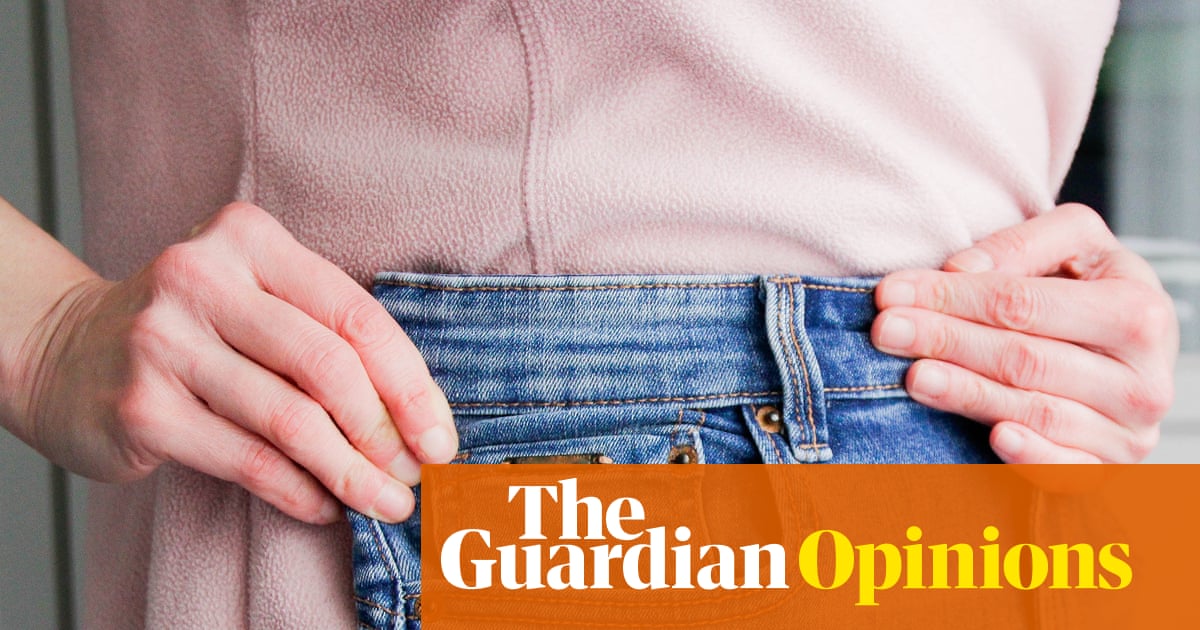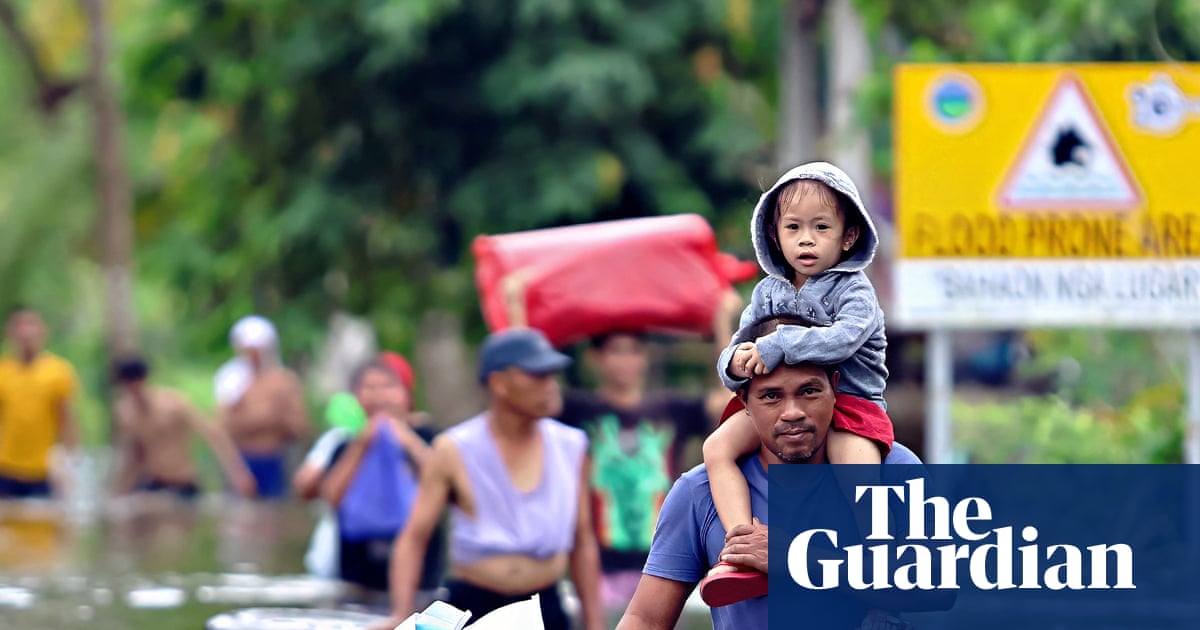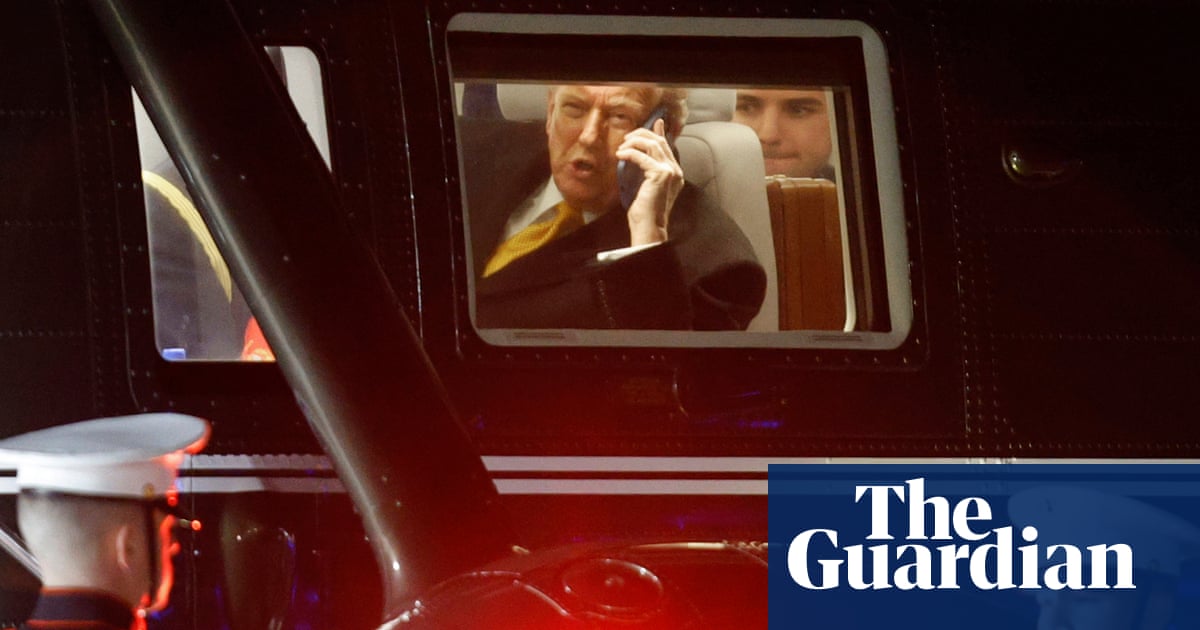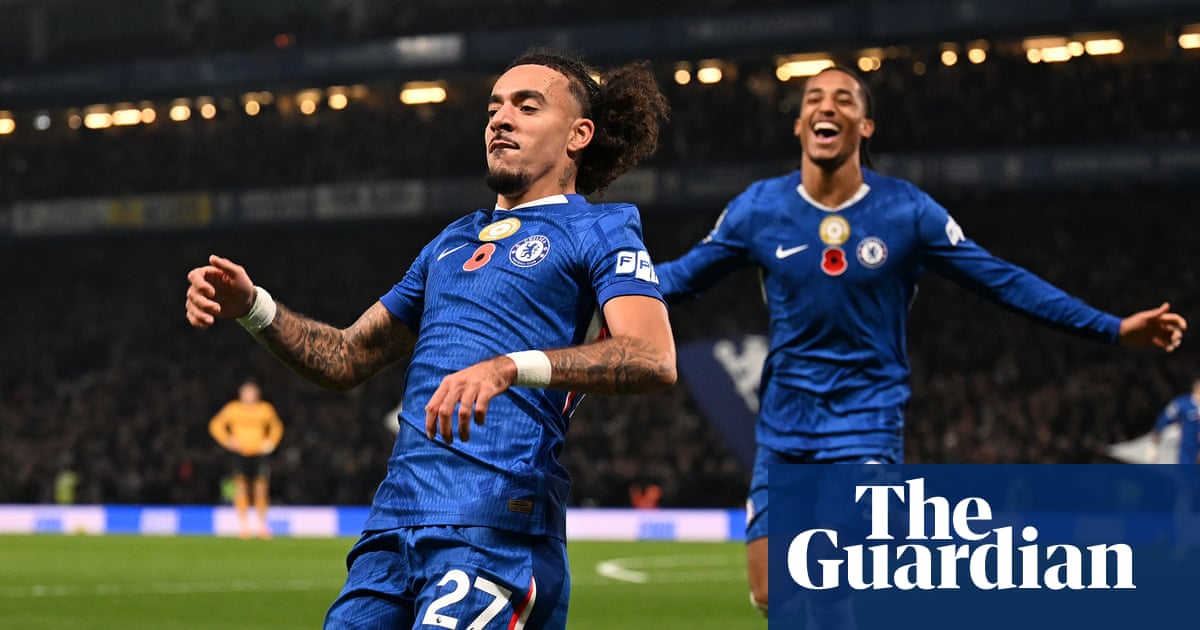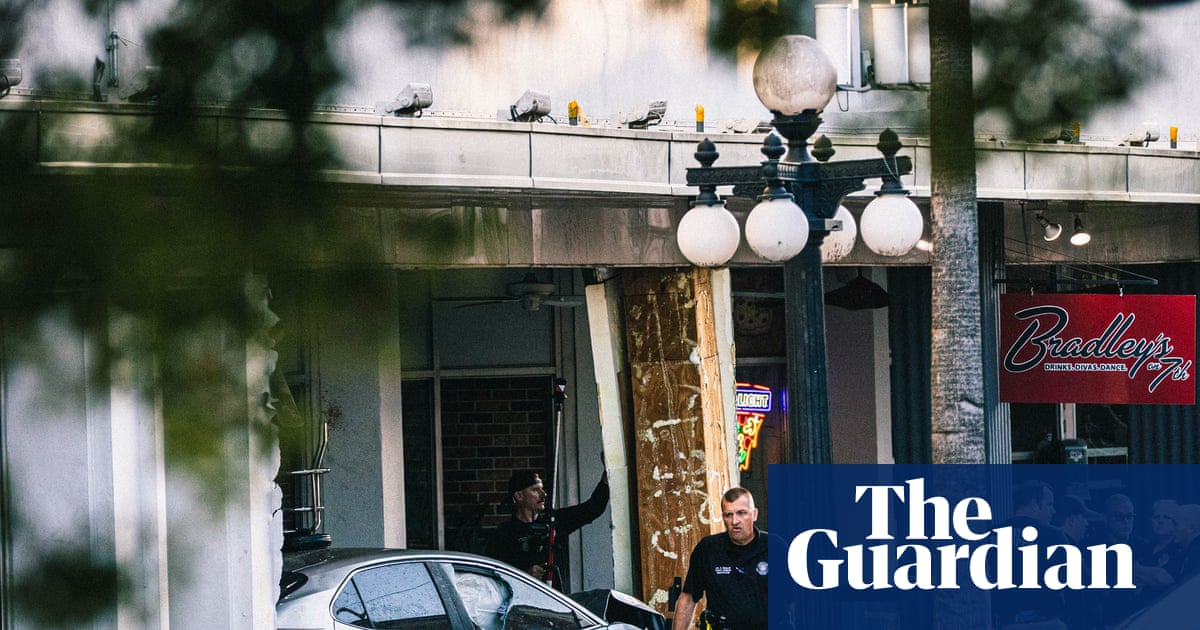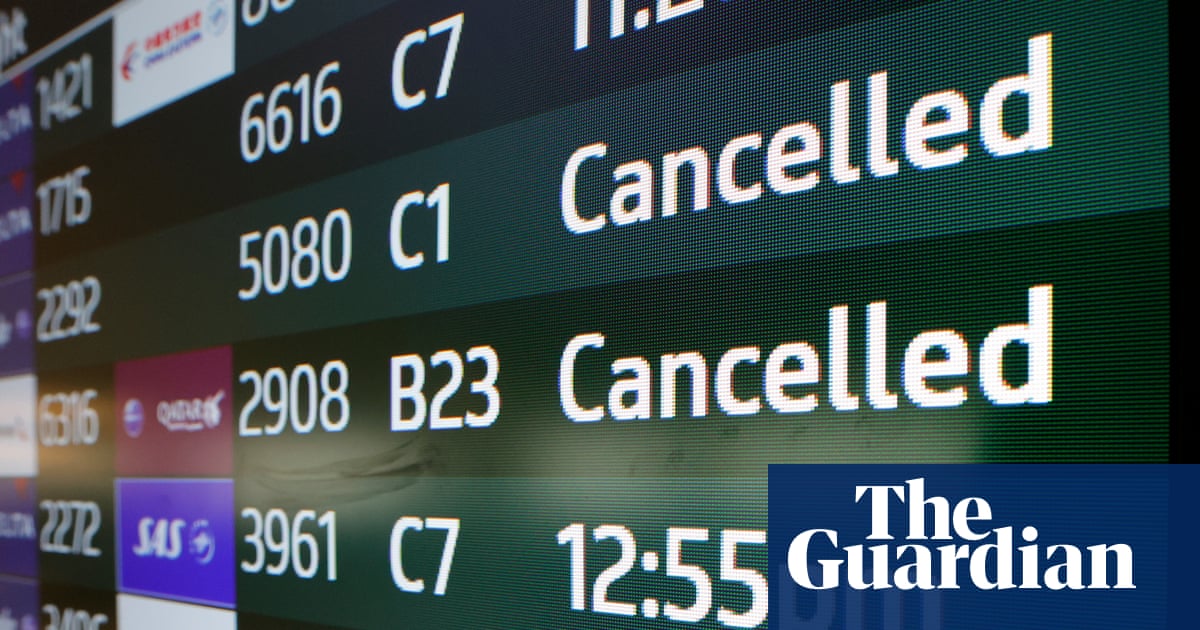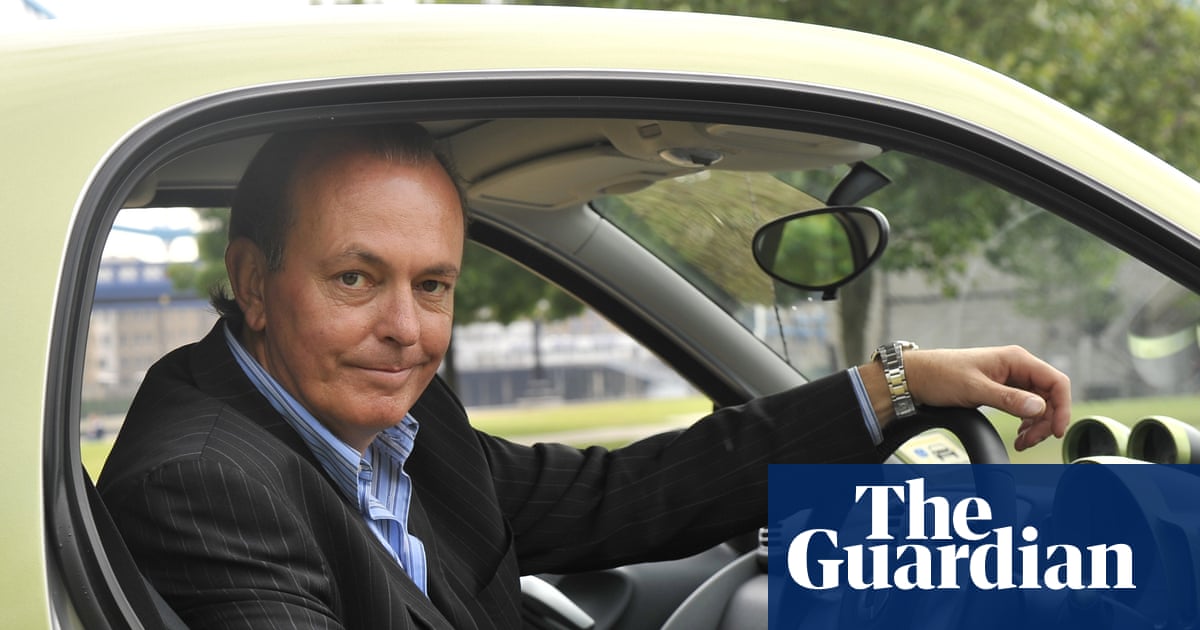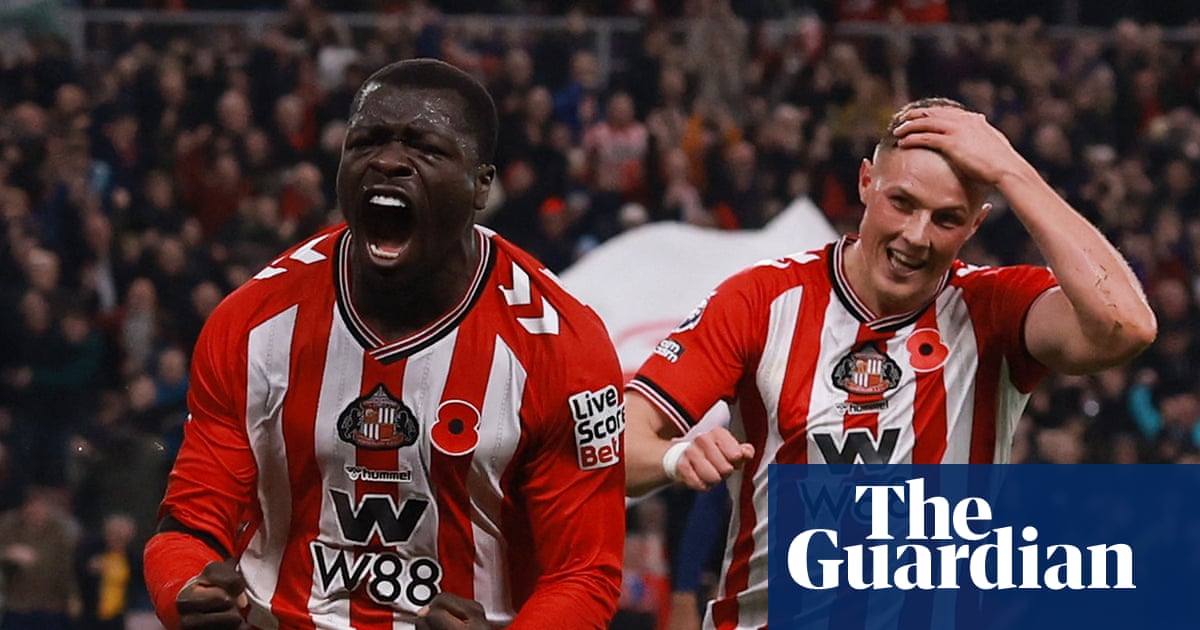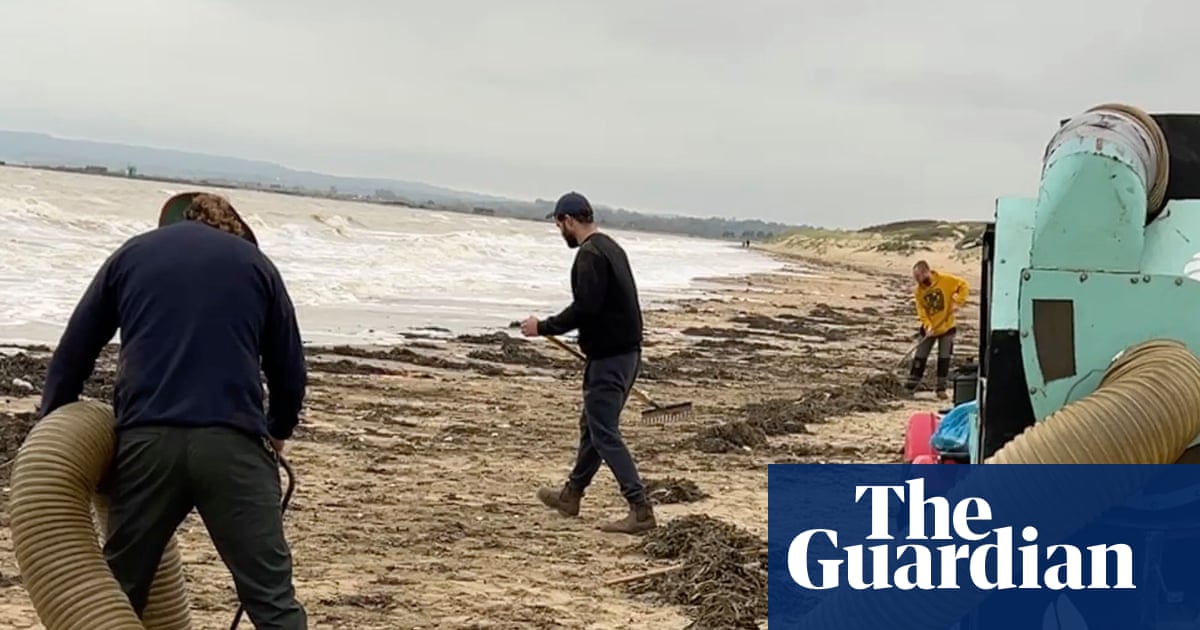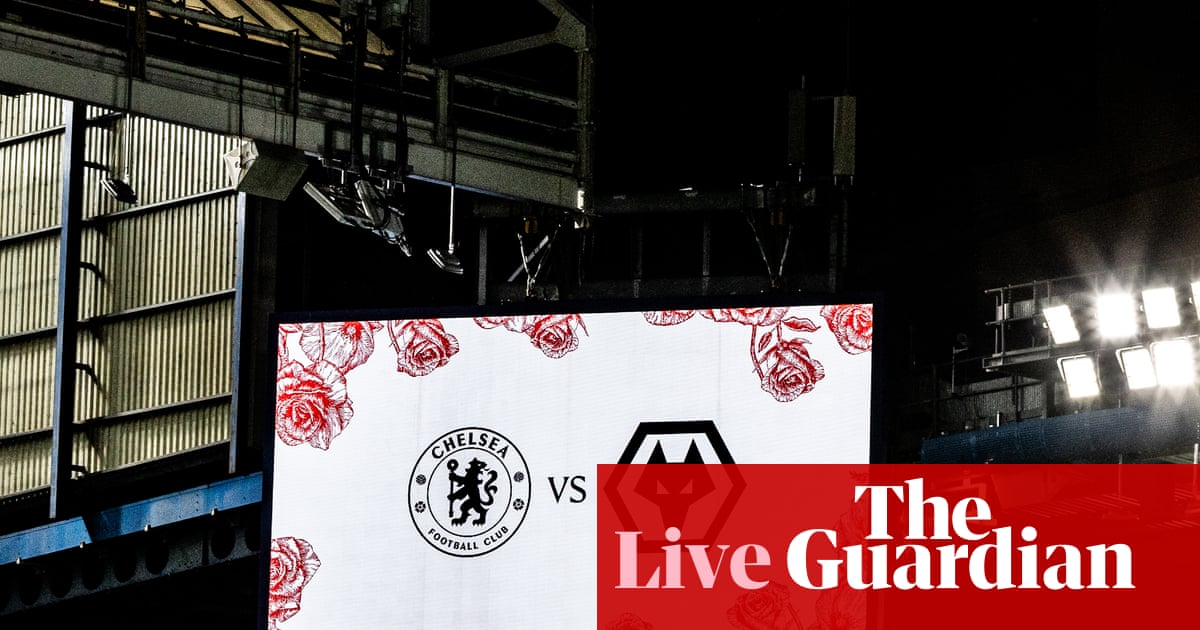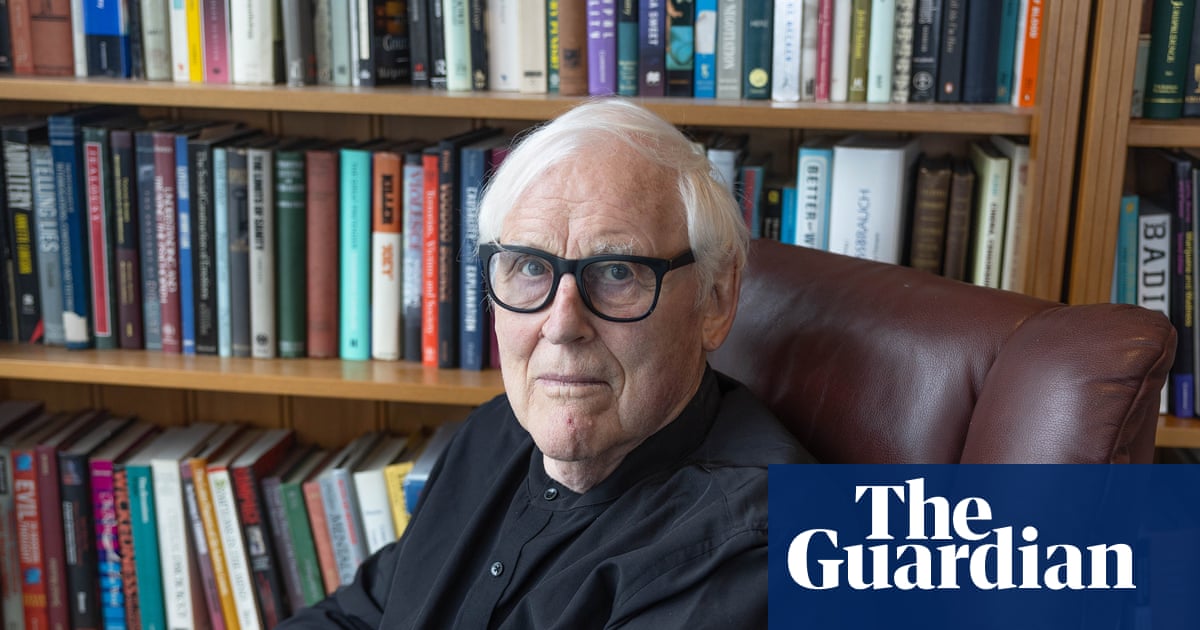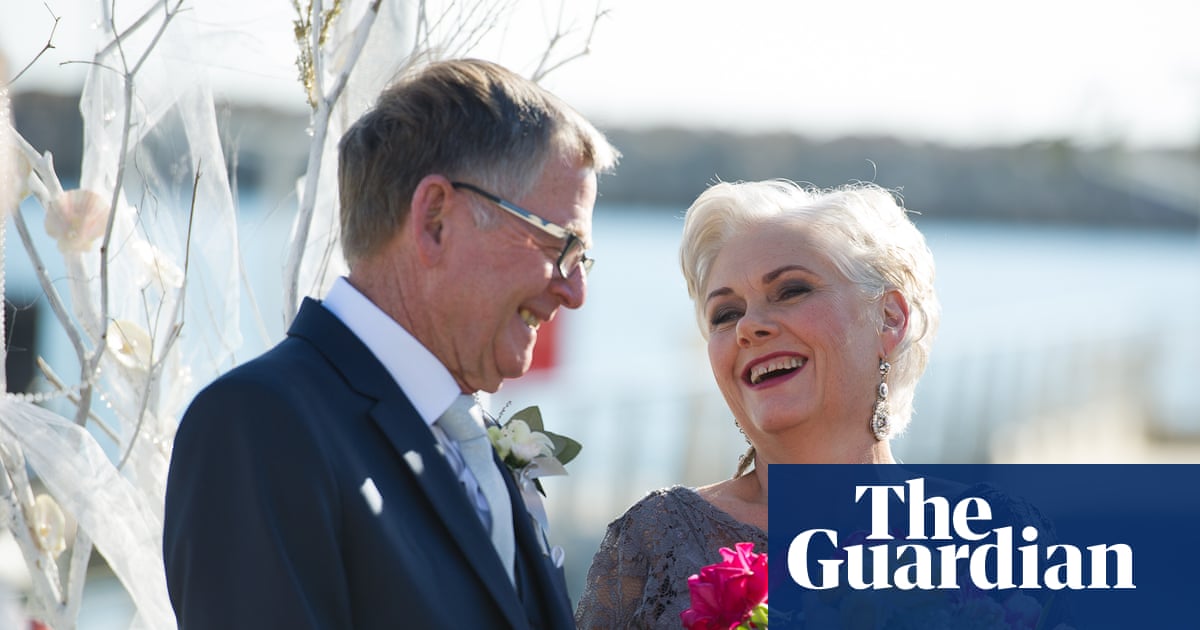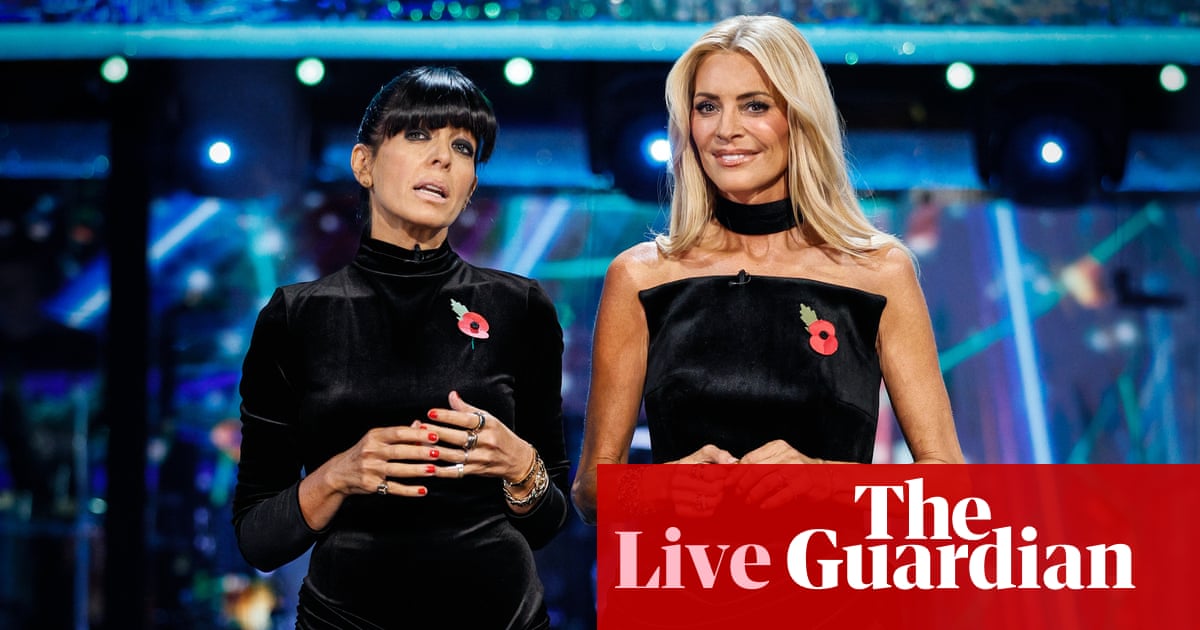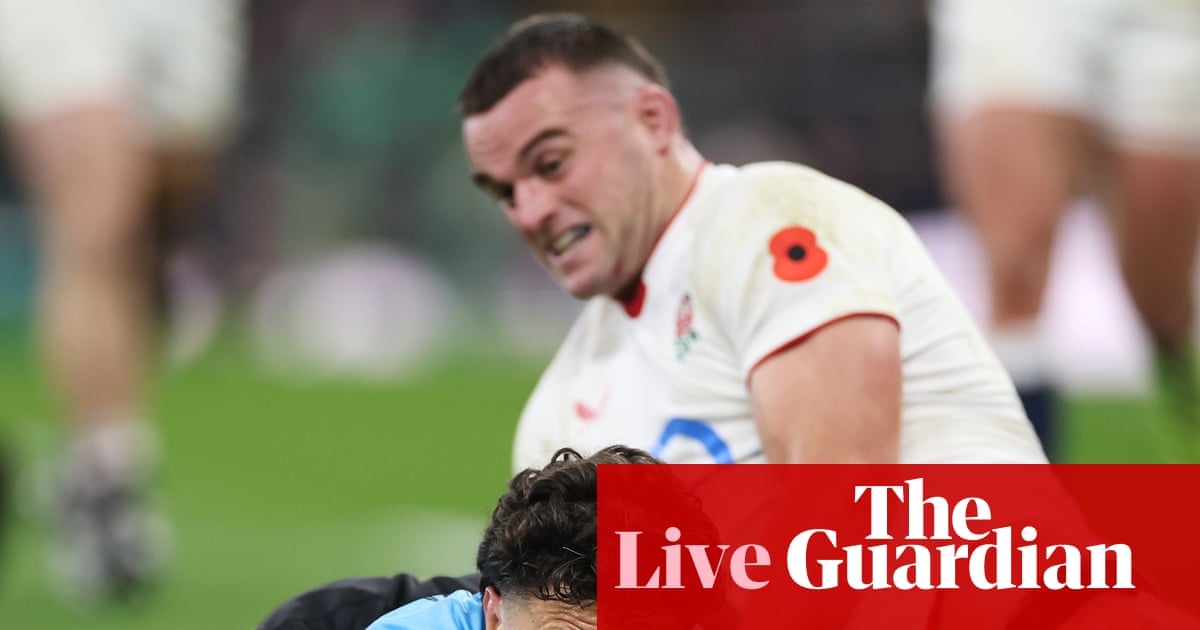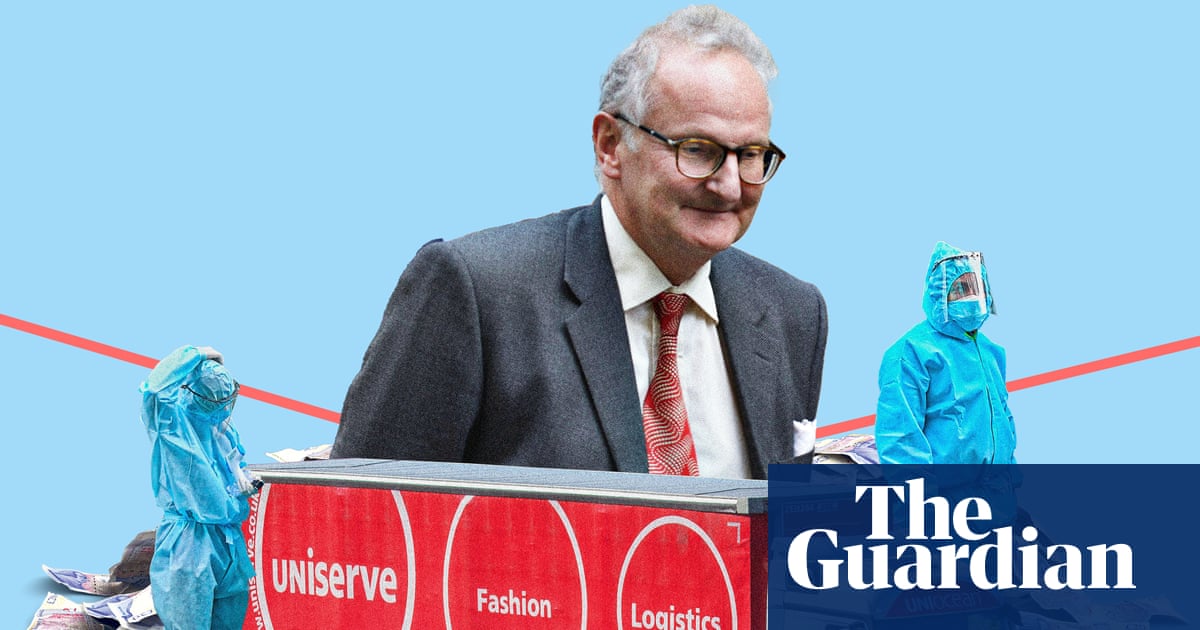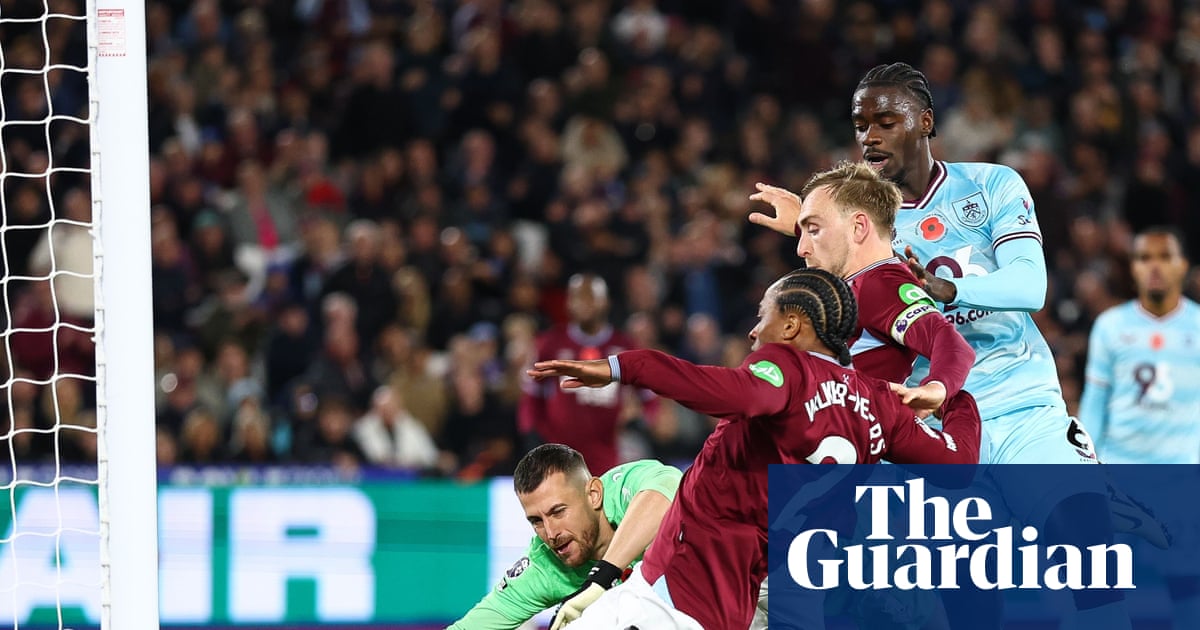Andry José Hernández Romero has already picked out the color of the suit he’ll wear to the next celebration of the Three Kings festival in his home town in the Venezuelan Andes. The carnivalesque celebration of Epiphany inspired the tattoos that landed him behind bars in El Salvador, accused of belonging to Venezuela’s most feared criminal gang, Tren de Aragua.
The suit will be green, “like hope”, he said.
Now free, and speaking over Zoom from his home, Hernández, 31, lifted his shirt to show two of the nine tattoos on his body: the words mom and dad, each inked beneath a crown. “This is the big controversy that has caused me too much harm,” he says.
Hernández, a make-up artist, was one of 251 Venezuelan men flown from Texas to the notorious Cecot maximum security prison in El Salvador as part of Donald Trump’s crackdown on immigration. They endured months in a facility described as the “cemetery of the living dead” before finally being repatriated in late July, following a deal between the US and Venezuelan governments.
Now, they are trying to rebuild their lives – and for Hernández, that means planning his outfit for the festival of Three Kings Day in his hometown of Capacho – a celebration he has been fascinated by since he was a boy.
“I’m already working on my suit. My mom is happier. Everyone wants to help me with the design and the fabrics,” he said. “What they still don’t know is that in Cecot I had so much time to think. The suit is already designed.”
He was arrested last August after crossing the US southern border to attend a prearranged asylum appointment. Hernández, who is gay, told agents he was fleeing persecution stemming from his sexual orientation and political views.
He was held for six months in San Diego, and on 15 March, he was put on a plane in Laredo, Texas, which he thought was headed for Venezuela.
But when it landed, the prisoners saw a foreign flag flapping in the wind.
At first, Hernandez presumed it was a stopover, but the men were soon forced off the aircraft by screaming guards who quickly made it clear they were now prisoners of an authoritarian crackdown by the president, Nayib Bukele, in El Salvador.
For four months, his family had no idea where he was. For them, he had been forcibly disappeared. There were no calls, no communication, no trace.
Confirmation of his whereabouts only came on 20 March 2025, when CBS published a leaked list of 238 Venezuelans sent to El Salvador. Later investigations confirmed that 90% of those deported had no criminal record in the US.
Life inside Cecot followed a bleak rhythm. There was no sunlight, no answers, no information. But always, there was the sound of handcuffs. “I think they used it as emotional control – that sound of the cuffs and the doors,” he recalled.
The yelling never stopped. “For everything. Because we spoke. Because we asked questions. For everything.
“If that’s how they treated us, knowing we were just migrants, I don’t even want to imagine how they treat the regular inmates – the ones who’ve actually committed crimes,” he said.
As a gay man, Hernández endured relentless harassment and taunting by the guards.
“In El Salvador, believe me, human rights don’t exist. And LGBTQ rights? Even less. People in there who belong to the community have to be brave... we carry an extra burden. It’s hard for a regular prisoner to accept that he shares a cell with someone from the community. Someone different. Someone who loves the same sex. Who sees the world differently.”
In interviews after his release, Hernández described an episode of sexual abuse. His lawyers have advised him not to speak further until they gather all the necessary evidence to file a formal complaint. “It’s a very hard and delicate thing to talk about,” he said.
Nobody told the men that they were going to be released, but last month the prisoners noticed that something had changed at Cecot. Doctors came to check on them. They were given hygiene products. Guards started to drop hints.
Then, 18 July, Bukele released a video making it official: a prisoner swap had taken place, exchanging ten US citizens and several political detainees in Venezuela for the 251 Venezuelans held in the cages of Cecot.
After 125 days locked up in El Salvador, the men boarded a flight home.
Hernández arrived in Capacho early on 23 July. His mother was waiting with pisca andina, a traditional Andean soup. His younger brother had brought him his favorite comfort food – salchipapas, or fried sausages with chips.
The return home was overwhelming.
“I’ve been amazed by all the solidarity,” Hernández said. “All of Capacho, everything they’ve done. My parents never stopped fighting for my freedom. What they did for me – it was enormous. I’ll be grateful to them for the rest of my life.”
Now, alongside his lawyers, he is focused on seeking justice – which, in his words, means clearing his name and those of his fellow deportees. “They have to clear our names. We were branded with legal ink. None of us belong to the Tren de Aragua. President Donald Trump and President Nayib Bukele must face the consequences of everything we went through in that prison. International authorities need to take action.”
Hernández has started drawing again. Over Zoom, he scrolls through dozens of sketches of dresses – a lifelong hobby that helped him survive the darkest moments.
But the trauma is still there: there are still sounds he struggles to process: keys jangling, doors closing, the fear that creeps in when he tries to sleep. “I thought it was just me, but several of my friends have said the same thing – that they can’t stand seeing a police officer or hearing the sound of keys or chains.”
He had hoped to return to the world of art, makeup, design – and to pursue a dream he’s had since childhood: launching a foundation called Ángel de Dios, to support children with HIV and cancer. For now, out of concern for his safety, he chooses not to speak about Venezuela’s political context.
“I think Andry Hernández is still going to be the same Andry as always,” he said. “I’m still the same person who cares deeply about the world of makeup – and about justice, especially when it comes to diversity and the LGBTQ community.”

 3 months ago
153
3 months ago
153
